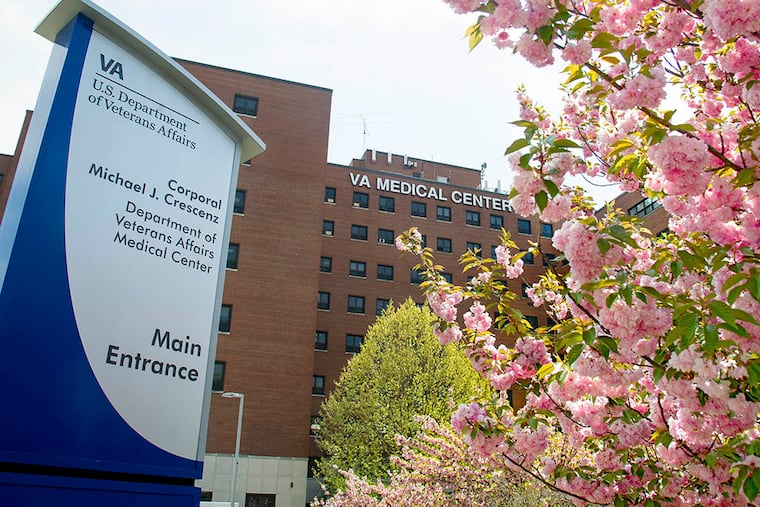Genetic testing could help match people with the right antidepressant, new VA study finds
One in five VA patients with depression involved in a study published on Tuesday in the Journal of the American Medical Association were prescribed an antidepressant not suited for their genetics.

Understanding patient genetics could help to minimize the trial-and-error approach to prescribing antidepressants, a national study led by researchers at the Crescenz VA Medical Center in Philadelphia has found.
Finding the right antidepressant can take time. It’s not uncommon for patients to try a few before finding an effective medication without too many side effects. Each round can mean losing weeks while waiting for the medication to start working, a frustrating reality for patients who seek relief and prescribers who often have little to guide them toward the optimal prescription.
“Often with medications you might start with one, a patient might have side effects for that or it might not work,” said David Oslin, a psychiatrist at the Philadelphia-based VA Medical Center. “You end up with a second or third trial before finding something that’s effective.”
Oslin led a team from the U.S. Department of Veterans Affairs that explored using genetic testing as a solution in a research trial involving nearly 2,000 patients from 22 VA primary care and mental health clinics throughout the country, including Philadelphia’s facility.
The study, published on Tuesday in the Journal of the American Medical Association, found that without testing, about 1-in-5 patients with depression were prescribed an antidepressant that they were less likely to respond to, based on their genetic profile. Genetic testing can steer patients toward the best treatment earlier by identifying the potential for drug-gene interactions.
Unlocking information
Genetics shape how people will metabolize many different drugs — so much so that a booming industry is offering tests to unlock this knowledge.
A simple test involving a cheek swab can help doctors access that information. If someone is predisposed to break down the prescribed antidepressant too fast, a regular dose might not have the desired effect. But the same dose can lead to more side effects in another patient who is genetically inclined to metabolize the medication more slowly.
The goal of the VA researchers was to see if this information would change how providers prescribe antidepressants — and lead to better patient outcomes.
All patients in the trial were being treated for depression and were randomly divided into two groups. Each received genetic testing, but the results were shared with their health care providers for only one group.
The outcomes were assessed over 24 weeks.
The researchers found that providing the genetic test results to prescribers, and educating them on how to use the information, led to more patients getting beneficial antidepressant medication based on their individual metabolism.
Those patients also reported their symptoms improved sooner than those prescribed medications without any knowledge of the patients’ underlying genetics.
“There was a big shift in how prescribing happened,” Oslin said. “It was very easy for providers and patients to agree to move away from using medicines that had potential drug-gene interactions.”
Still, only 20 percent of trial participants were initially prescribed medications mismatched to their genetics. This means that 80% of patients prescribed antidepressants probably don’t need genetic testing, Oslin said, calling the real challenge identifying the one in five who could benefit from testing.
Toward precision
While some areas in medicine increasingly use genetic testing and biological indicators to direct treatment decisions, there isn’t a lot guidance for mental health providers selecting between one antidepressant or another. The new VA research suggests that genetic testing could help doctors and patients make decisions on mental health treatments.
“Any step that we take toward more precise and personalized psychopharmacology is very important, and we need to go there,” said Mario Cristancho, director of outpatient psychiatry services at the University of Pennsylvania.
Any form of testing should be used in combination with a medical provider’s clinical judgment or the patient’s history, Cristancho said.
Being able to explain why a drug may work or not can also help people experiencing depression to avoid feelings of frustration.
“It helps not only to choose the best next steps in terms of the medication but also to validate the patient in their experience,” Cristancho said.